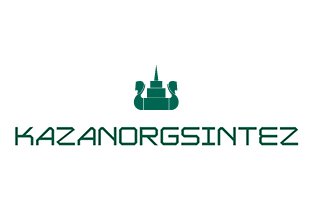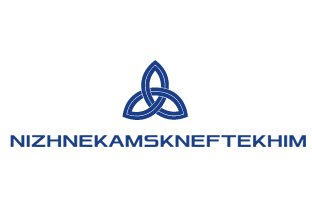Alexander Shadrikov: “The task is not to collect millions of fines, but to put things right”
The minister of ecology of Tatarstan about the culprits of air pollution, grave robbers and billion-ruble investments in saving the Volga River and the environment
Tatarstan is an industrial republic, but most of all the air is polluted, as it turned out, not by enterprises, but by cars. The share of motor vehicle exhaust gases accounts for 54% of the total volume of harmful emissions in the region, said the guest of the studio of Realnoe Vremya online newspaper — Minister of Ecology and Natural Resources of the Republic of Tatarstan Alexander Shadrikov. Nevertheless, industrial giants contribute to reducing harmful emissions. In particular, Nizhnekamskneftekhim has invested more than 3 billion rubles in the construction of treatment plants, and Kazanorgsintez — more than 2 billion rubles in the ecology. Our newspaper has collected 10 main points following the results of the conversation with the minister.
The conversation with Minister Alexander Shadrikov in our studio was reduced to four main areas:
- environmental situation in Tatarstan: problem issues on the map of the republic;
- main causes of environmental pollution;
- reclamation of the Samosyrovskaya and Tagaevskaya landfills;
- implementation of the project Improvement of the Volga River.
Point 1. The number of harmful emissions in Tatarstan has decreased 2.5-fold in 4 years
The ministry of ecology of Tatarstan receives up to 10,000 complaints annually from residents of the republic on the state of the environment. At the same time, the amount of harmful emissions into the atmosphere of the republic is gradually decreasing:
“The cases of exceeding the threshold limit value (TLV) in the atmosphere has decreased by almost 2,5 times since 2015,” said the minister.
An analysis has shown that 54% of the total amount of harmful emissions in the republic falls on the motor vehicle exhaust gases, not on enterprises. In Tatarstan, the problem is being addressed by the switchover on gas motor fuel — more than 6,000 vehicles are already running on gas.
Point 2. The residents of Naberezhnye Chelny and Kazan breathe the clearest air in Russia
A recent study by the All-Russia People's Front (ONF) and the Russian ministry of natural resources has shown surprising results on the state of the atmosphere in Russian cities. Naberezhnye Chelny has been ranked the first in terms of air purity, Kazan — the second, and Voronezh — the third.
“Over 5 years, the number of cases of TLV exceedance in Naberezhnye Chelny has decreased by 2 times, and in Kazan — by 2,5 times,” Shadrikov specified.
In parallel, Tatarstan is developing standards for the level of TLV exceedance and aromaticity. The proposals of regional colleagues will be considered in the ministry of natural resources.
Point 3. Tatarstan enterprises invested 5.5bn rub in ecology last year alone
The production facilities of the republic have also helped to reduce harmful emissions. Industrial giants have directed billions of rubles to protect the environment.
“In 2018, industrial enterprises together with the budgets of Russia and the republic invested about 6 billion rubles in environmental measures,” said the minister of ecology of Tatarstan.
The lion's share of this amount, or 5,5 billion rubles, is the money of the enterprises. In particular, Nizhnekamskneftekhim invested more than 3 billion rubles in the construction of treatment facilities, and Kazanorgsintez invested more than 2 billion rubles in environmental measures.
Point 4. Dozens of treatment plants are being built and reconstructed in Tatarstan
In Kazan, a significant contribution to clean air has been made by Vodokanal Municipal Unitary Enterprise, which has allocated about 600 million rubles for the construction of special hoods on biological treatment plants in the Privolzhsky district to save the nearby residents from odour.
Big projects for the long term — further reclamation of silt fields in Kazan, as well as the construction and overhaul of treatment facilities within the framework of the project Improvement of the Volga River.
In total, there are 87 treatment facilities in Tatarstan. Most clean drains with chlorine. Since 2017, the budget of the republic annually directs 170 million rubles for the construction and reconstruction of the treatment facilities. This year, 9 facilities are to be built for one billion. In total, about 40 objects have been reconstructed and built.
“This work is not carried out anywhere else in the Russian regions on such a scale. In Tatarstan, a lot is invested in the construction of treatment plants,” the minister stressed.
Point 5. Fines of 57 million rubles and 24 criminal cases on violations
But it is not enough to invest in treatment facilities, it is important to observe the technology when using them. Violators are punished with fines, and criminal cases are initiated against repeat violators. The minister did not name the companies-polluters but noted that small and medium-sized businesses in the republic were fined 57 million rubles.
“But the task is not to collect millions of fines, but to put things right,” he added.
Twenty-four criminal cases have been initiated against repeat violators. Last year, they were 35, which is an upward trend. And it is not only about the discharge of wastewater, but also illegal subsoil use, unauthorized dumps and others. Five criminal cases alone have been initiated against grave robbers.
In general, environmental supervision has revealed more than 4,700 violations in small and medium-sized enterprises of the republic.
Point 6. There have become fewer dumps in Tatarstan
Judging by the statistics given by the minister, this is true: if last year they revealed 1,650 dumps, this year they have revealed 1,500. The decrease was about 10%.
The reclamation of the Togaevskaya landfill has already been completed, the minister stated. The reclamation works required investments of 120 million rubles. An additional 72 million has been allocated for the improvement of the Samosyrovskaya landfill. The works on its reclamation are also to be completed this year.
Environmental specialists from other regions come to study Tatarstan's best practices in environmental monitoring.
Point 7. Kazan is introducing the system of control of harmful emissions in wastewater
Special attention is paid to the monitoring of water bodies. Vodokanal MUE in Kazan together with the Finnish company Uros has implemented in the city a special system that controls the content of more than 70 different harmful substances in the drains. Now the system is working in pilot mode. With the help of Uros systems, the operator can detect deviations in the general chemical analysis of water in real time and take immediate actions.
President of Tatarstan Rustam Minnikhanov offered the Finnish company Uros to become a resident of SEZ Innopolis.
Point 8. How Duracell and Coca-Cola take care of the environment in Tatarstan
Alexander Shadrikov also spoke about a joint project with the manufacturer of batteries Duracell. In various places of Kazan, they have installed containers for the collection of used batteries, which Duracell recycles at its own expense. Since the installation of such containers, 24 tonnes of used batteries have already been collected.
Another project has already been announced at the level of top officials — the partnership between Tatarstan and Coca-Cola is designed to make Kazan the first waste-free city in Russia.
Point 9. Almost 2 billion under the project Improvement of the Volga River
This year alone, almost 2 billion rubles have been allocated for the implementation of the project Improvement of the Volga River in Tatarstan. The most large-scale works worth 800 million rubles are going in Yelabuga — in the construction of treatment plants. The remaining amount is used to build treatment plants in Tetyushsky and Alekseyevsky districts, as well as to lay storm sewers in Kazan. This work in the Tatarstan capital is to be continued next year when the same amount of funds are to be allocated for the project — 1,9 billion rubles.
An increased amount of sulphates in the Volga River water has been recorded in the region. How harmful is it? The minister explained that there is the mineralization of the Volga River due to its tributaries and new springs that feed it. But in general, in recent years, the water quality in the river has improved significantly, and not the least role is played by the national project Ecology.
“It is necessary to treat Volga River as to Volga-mother, it is the main water intake in Kazan,” the minister stated.
Point 10. Lukoil's subsidiary to send more than 400 million to dismantle abandoned oil pipelines
RITEK PLC (subsidiary of Lukoil) together with the government of Tatarstan is ready to invest more than 400 million rubles in the project on improvement of Volga. The project involves the dismantling and lifting of abandoned pipelines in oil fields. This initiative can become part of the national project Ecology, the implementation is scheduled for 2020.
Official partners:
 |  |